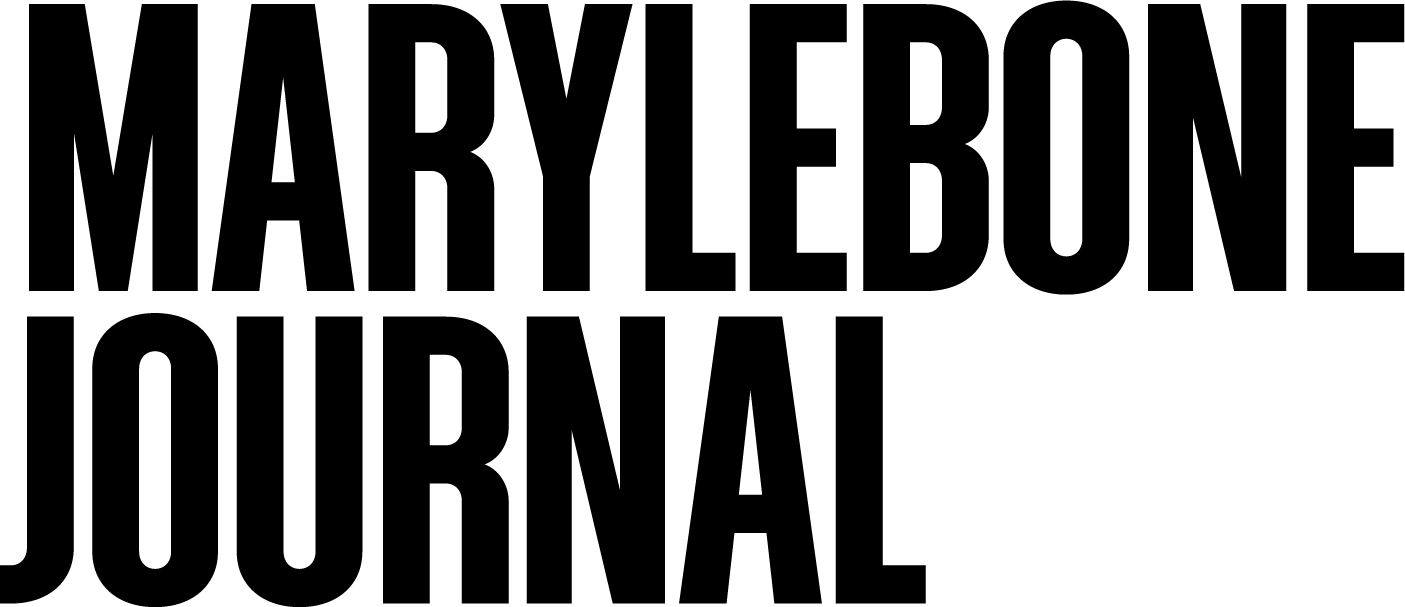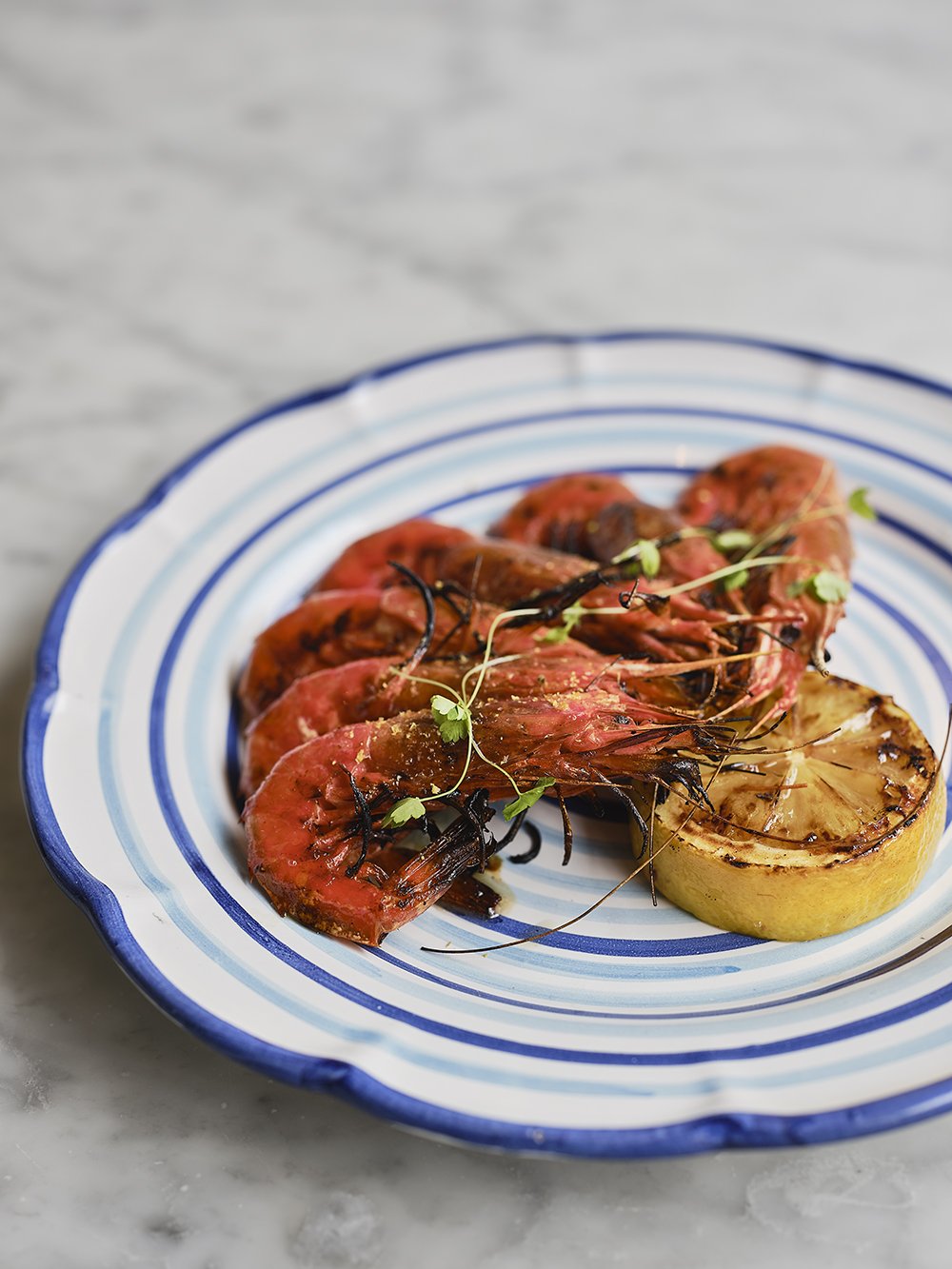Q&A: Melody & Nemanja
The co-owners of Lurra and Donostia on Basque cuisine, hard cider and the wild response to the meat of old dairy cows
Interview: Ellie Costigan
Images: Orlando Gili
How did you come to open a Basque restaurant in Marylebone?
Nemanja: Mel and I were working in finance and banking before opening the restaurant. We have always been foodies – ones who were prepared to drop everything and dive deep into the restaurant world. One of the biggest regrets we have is not doing the jump sooner. When you’re working in the City, you’re pretty much there because you need to pay the bills. It was a lifestyle shift – we wanted to work in food, we had a passion for it. It doesn’t feel so much like work.
Melody: It was discovering San Sebastián that changed everything. I was unsuccessfully importing wine at the time and Nemanja and I were driving to a winery to get a new vintage. It was a long drive, so we thought we’d stop over in this small town that’s known for its gastronomy. We stayed in San Sebastián for one night and were shocked that, despite there being such a massive food scene in London – particularly Spanish – there was this Basque gem being overlooked. It’s very different to traditional Spanish cuisine. We started going back to San Sebastián and the surrounding regions more and more, and eventually decided that somebody should do this kind of thing in London. And it should be us.
What would you say characterises Basque cuisine?
Nemanja: Few ingredients, all about sourcing, no faffing around on the plate. You hear that a lot – “We’re all about sourcing good ingredients” – but nowhere is it truer than in the Basque Country. Many are one-ingredient dishes: the turbot, the steak, the peppers. No embellishment, no nothing. You can imagine how good it’s got to be. That’s one of the key characteristics of Basque cuisine and that’s what really appealed to us; the simplicity.
The region’s also known for a particular wine: txakoli. What’s special about it?
Nemanja: Txakoli is only produced in a couple of regions of the Basque Country – mainly in the hills of Getaria, which is a small fishing village, famous for its turbot. The wine is unique because it has a natural spritz: you pour it into a beaker from a height, which is quite showy, to aerate it and start the fizz. You’re supposed to pour just a little bit and neck it. It’s great because it’s a low-alcohol wine, only 10 to 10.5 per cent, which these days is quite hard to find. It has this amazing lightness. It has a taste of the sea. The minerality in it is something special. It pairs well with the turbot, which we also do in Lurra. It’s a match made in heaven.
The Basques are famed for their cider making – tell us about that.
Nemanja: They make the scrumpy-style, natural cloudy cider – not carbonated or sweet, more on the sour side. It’s called ‘hard cider’. The guys who do it well use 100 per cent Basque apples. Again, it’s poured from a height to get a little bit of fizz. The tradition of the cider houses is, the farmers would bring their meat and exchange it for cider. Over time, they ended up cooking the meat in the cider house and drinking the cider there. It’s now an established gastronomic tradition, where you go to the cider house and you have the steak, you have the cod, the Basque-style chorizo – and you get pissed on the apple cider. It’s very good.
As good ingredients are so clearly integral, was it difficult to find the right suppliers?
Melody: We didn’t have a clue at first. The first time we went, there was a UK government travel warning because of the local terrorist group Eta, which was still semi-active. You didn’t see many foreign tourists, other than a few surfers. We started talking to the restaurants that we liked, and back then, they were very approachable. One couple in particular said: “Next time you come to San Sebastián we’ll show you around.” They introduced us to one of their txakoli suppliers, who we still work with today – Elizabeth, the same lady supplying the same txakoli since we opened – their Cantabrian anchovies supplier, their beef supplier, who we now import beef from for various restaurants as well as our own. It was very open.
Nemanja: Our chefs went and did work experience at Elkano, which back then was just a popular seaside restaurant – now it’s become the place you can’t visit San Sebastián without going to. I asked if our chefs could come for two weeks and learn how to do the turbot and the sauce and it was like: “Yeah, sure. Tell them to knock on the door when they’re here and speak to so and so.” Now it’s all become very Michelin, you have to do a six-month stage. It was fantastic for our chefs. You think to cook turbot you just put it on the grill; they came back and said: “So, there are 13 steps to cook turbot the Basque way. This is how you debone it, this is how you make the secret sauce, this is how you introduce it.” They also went to La Viña, which is famous for its burnt Basque cheesecake. It’s very hard to replicate what they do there, but we give it a good go.
How important is it to you that you stay true to traditional Basque recipes and techniques?
Nemanja: We do as much as we can. When we were opening Donostia, we were very keen to do the pintxos thing, but we had to adapt that to the market here. There, it’s all up on the bar, with the cocktail sticks: you eat them, then take your sticks and pay for however many you’ve taken. We kind of thought if we did that here people would be thinking, how long has that been out there? And it might be perceived as canapes. So, we started doing pintxos made to order, fresh, rather than standing on the bar. We’ve adapted things slightly. We also source what we can from the UK. Our turbot is always wild from Cornwall, veg comes from the UK, predominantly.
What made you open up a second restaurant, Lurra, just over the road from Donostia?
Nemanja: When we opened Donostia, we never really had any ambition to open another restaurant, but then a couple of things happened at the same time. Donostia was an instant success and very busy. We were turning a lot of people away, because the restaurant is so small – and then we discovered Galician blond meat. It comes from old dairy cows and we had never come across anything like it. We started doing the steak as a special, bringing in 20, 30 kilos, and whenever we had it on the menu people were wowed by it. It wasn’t just: “Thank you, that was a very nice steak, see ya.” It was: “Here is my business card, when you’ve got it in again, call me.” We realised that nobody else was doing this Galician blond meat in any of the Spanish restaurants in London. But it was difficult to do it in Donostia: you’ve got a small plancha and when you’ve got three steaks on it, everything else is on hold. Then we saw The Portman Estate, our landlord, doing up this site. There’s a courtyard in the back, which is beautiful – and so rare. We thought, why don’t we do a Basque grill? The turbot, the steak, the suckling lamb – bigger dishes. We took a punt, and it paid off.
Covid-19 had a huge impact on the hospitality industry. Has there been a lasting impact?
Melody: During the lockdowns we were operating an online shop and delivering food boxes, including working with charities to cook for the NHS. We’ve stopped doing that now, but our baked Basque cheesecake became hugely popular – it was an Instagram hit! So we’ve continued to do that: you can either order a whole cheesecake, which people like to do for birthdays, for example, or you can just pop in and pick up a slice to take away.
Lurra is open full time and we have all our classics back on the menu: the grilled turbot, the steak, as well as Basque specials like pil-pil cod cheeks. Donostia is back open, but still closed on a Monday, and Tuesday and Wednesday lunchtimes – but we’re getting there. It’s just great having customers back in. After everything that’s happened, it’s so lovely to see a full, buzzy restaurant. We’re back doing what we love, which is serving customers face to face.
Something that seems to be affecting the whole industry is staff shortages. Has that impacted you?
Melody: We still have our head chef, Charlie – my brother. We also have a lovely French girl, Justine, who has worked with us for five years and has now been head chef at Donostia for six months. But otherwise, we’ve had to build a new team. Arguably, though, it’s the strongest we’ve ever had. We’ve been through a lot together and the people who are with us now really want to be here, they really want to work. Although it’s harder to hire, people stay for longer. When they’re with you, and like working with you, they stay.
Have you noticed any changes in the way people eat out, and their appreciation for restaurants?
Melody: When we reopened last year, it was like Christmas – people having these long, boozy lunches, because they just hadn’t been out for ages. While that’s settled down, lunchtimes are still much busier than they used to be. It’s more important than ever for people to take clients out and see them face to face, because they’re not having office meetings as much. The business lunch has become crucial to maintaining relationships. That’s really interesting – and a real plus for us!



